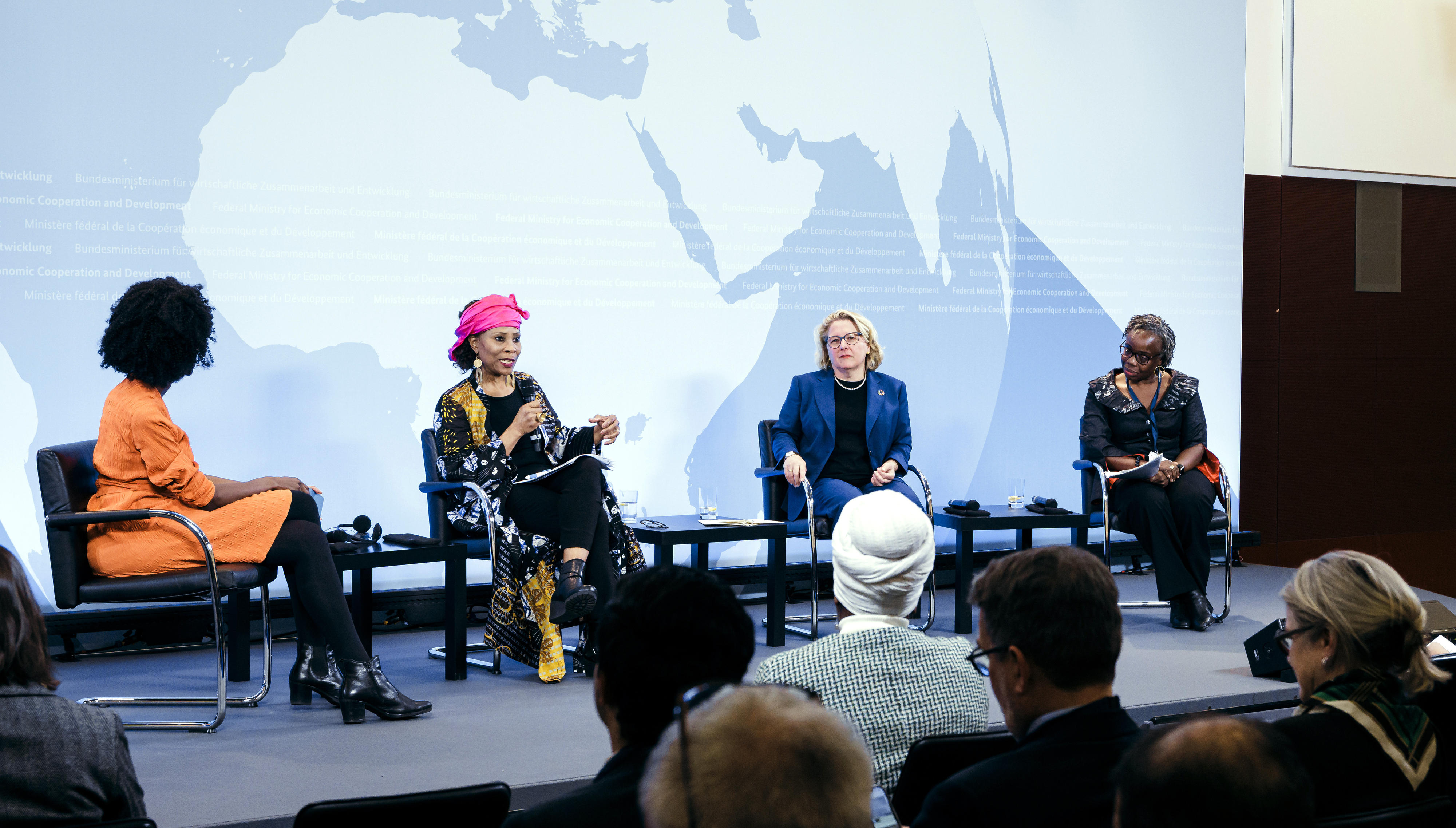Historical background Colonialism and addressing the past
Germany began annexing colonies in Africa and Asia in 1884. Based on overall surface area, by 1914, Germany had the third largest colonial empire after the UK and France. It included parts of the modern-day states of Burundi, Rwanda, Tanzania, Namibia, Cameroon, Togo, Ghana, China and Papua New Guinea, as well as several islands in the West Pacific. After World War I, Germany was forced to hand over all of its colonies to other colonial powers.
Global decolonisation took place in several phases. While many countries in Latin America freed themselves from Spanish and Portuguese rule in the 19th century, most African countries achieved independence in the 1960s.
Many of the disparities between the former colonial powers and the former colonies remained, however, both with regard to the distribution of wealth and in terms of global political and economic influence. These disparities continue to determine international development cooperation to this day.
Addressing the history of the colonial era
After World War II, the focus was on addressing the events of the Nazi period, and Germany’s colonial past was largely overlooked. While critical engagement with the colonial period in public discourse, politics, academia and culture has increased in recent years, there is still very little reference made in public discussions or in educational institutions to how closely contemporary German and European culture is intertwined with power structures and viewpoints that are rooted in colonialism.
On 15 May 2021, Namibia and Germany initialled a Joint Declaration, which has so far not yet been signed. In that Joint Declaration, reference is made to the genocide against the Nama and Herero communities. Germany has stated that it will officially ask Namibia for forgiveness.
Panel discussion at the event “Joint Perspectives: Cooperation with Africa in Times of Change” on 25 January 2023 with (left to right): Liz Shoo, moderator, Ahunna Eziakonwa, Regional Director for Africa at the United Nations Development Programme (UNDP), Svenja Schulze, then Development Minister, and Mavis Owusu-Gyamfi, then Executive Vice President of the African Center for Economic Transformation (ACET), today President of ACET
Part of the German government’s historical responsibility includes investigating where human remains from former colonies are still being kept in German institutes and museums and returning them. There are also many artefacts requiring investigation in order to establish who the original owner was and how the object ended up in Germany.
By engaging in partnership-based dialogue with communities and countries of origin, steps are being taken to establish an appropriate approach for dealing with objects brought to Germany unlawfully. The first objects have already been returned.
As at: 20/07/2023
